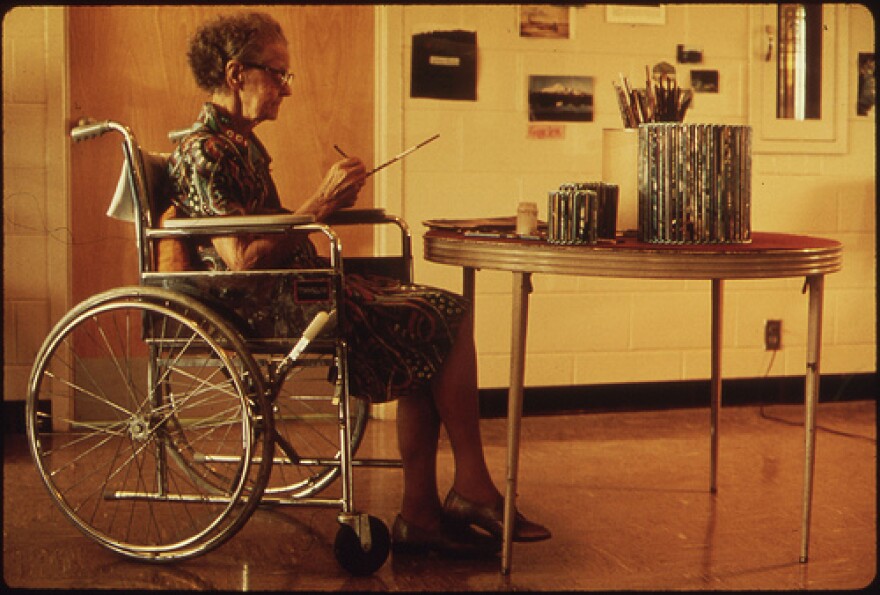Beginning July 1, Colorado patients will start saving hundreds and even thousands of dollars on medical equipment because, after a 10-year delay, Medicare is switching to competitive bidding in the Denver and Colorado Springs metro areas.
Many insurance companies set their prices for medical equipment based on the prices paid by Medic are, the government health plan for people 65 and older. So observers say lower Medicare prices could push down costs for private patients as well in the coming year.
Medicare has been wildly overpaying for home medical equipment for years, , the inspector general overseeing Medicare, and the congressional General Accounting Office.
For example, found that a power wheelchair cost Medicare a median price of $5,297. By comparison, the same wheelchair cost consumers $3,863 and wholesalers $1,550.
Under the new bid system starting July 1 in Denver and Colorado Springs, Medicare will pay $1,849 for new or $1,387 for used power wheelchairs. Patients pay 20 percent of that and Medicare pays 80 percent.
Kyrzia Parker, a student at the University of Denver, said help from the government to pay for her power wheelchair is essential. Born missing fundamental joints in her arms and legs, Parker said, “I wouldn’t be able to do anything without it.” She said lower costs for expensive parts and eventually a replacement will help her enormously, because “I live on soup and sandwiches.”
Medicare patients in the rest of Colorado, including Boulder, will continue to pay the higher prices until Congress orders the bidding program expanded, said Medicare spokesman Mike Fierberg.
The change – at least along the Front Range – comes 10 full years after Congress first ordered it. But it was Congress itself that set the original prices. Then it was Congress that ordered bidding delayed, after complaints from equipment suppliers.

Suppliers are fighting back, because many of them did not make the cut and say they will be out of the Medicare business. One of them is Doug Coleman, CEO of with outlets in Greeley, Longmont, Fort Collins, Brighton, Leadville, Colorado Springs and Denver.
Coleman, who is also head of the state association of medical equipment providers, said very few Colorado companies won bids, and smaller ones may go out of business. Using his own company as an example, Coleman said he bid about 30 percent below current prices, but others came in 45 percent lower. He said his higher prices were justified because most of his costs are servicing the equipment and Medicare’s complex billing, not the equipment itself.
Patients will suffer, he said. “Will deliver a walker to a hospital?” he asked. (The chain discount retailer is listed on as a supplier of walkers in the program.)
Medicare spokesman Fierberg defends the bidding program, which has been operating in nine trial markets for a year. Over the next decade, savings are expected to reach $25 billion for taxpayers and $17 billion for patients.
“Legislation to end the competitive bid system is backed by the very same entities who are currently being vastly overpaid,” Fierberg said.
In fact, medical equipment is the one area where Medicare now pays more than private insurance companies do. Anthem Blue Cross Blue Shield vice president Janet Pogar said her company pays 70 percent of the Medicare price, and she “absolutely” expects the new Medicare fees to drive down prices across the industry as contracts renew. In contrast, Medicare pays doctors so much less than private insurance that many doctors won’t take a new Medicare patient in Colorado.
Fierberg also noted that the bid program slams the door on what has been a common scam: Fake providers billing Medicare for service and equipment for patients who don’t actually exist. Now, only winning bidders with contracts will be paid.
Nationally, the American Association for Homecare is pushing Congress to delay and change the bidding program. As , the association cited a woman whose provider is switching her off her preferred type of portable oxygen. Medicare’s Fierberg said providers may not change a doctor’s prescription.
As with wheelchairs, people who use oxygen concentrators to help them breathe also have been paying far more than market prices. In 2004 that Medicare suppliers could receive $7,215 for 36 months of renting a machine that cost an average of $587 to buy.
Beginning July 1, Medicare is cutting its rental payment in the Denver and Colorado Springs metro areas for oxygen concentrators nearly in half, from $177 to $92 a month.
That cost is still high for long-term users, as a used concentrator can be purchased for $450 including shipping from Oxygenplusmedical.com. But under orders from Congress, Medicare won’t pay for purchase except through a 36-month rent-to-own plan. So Medicare and patients still will pay $3,312 for a type of machine that can be purchased new for $707 online.
Medicare’s rental price includes servicing the equipment, but the inspector general found that most of that maintenance can be done by the patient.
Outside Denver and Colorado Springs, Medicare patients across Colorado still will be paying the higher prices until Congress orders the bid program extended. Here are a few resulting price differences for several commonly used pieces of medical equipment:
- $58 a month to rent a standard, non-power wheelchair. (Denver and Colorado Springs patients will pay $25 for the same equipment)
- $66 to purchase a walker. (Denver and Colorado Springs patients will pay $44 to $45 for the same equipment. NOTE: Walmart sells walkers to the public for $32)
- $6,372 to purchase an oxygen concentrator. (Denver and Colorado Springs patients will pay $3,312 for the same equipment. NOTE: Oxygen concentrators can be purchased online for $707 new.)
Rabah Kamal and Terrence Gibson contrbuted to this story.







